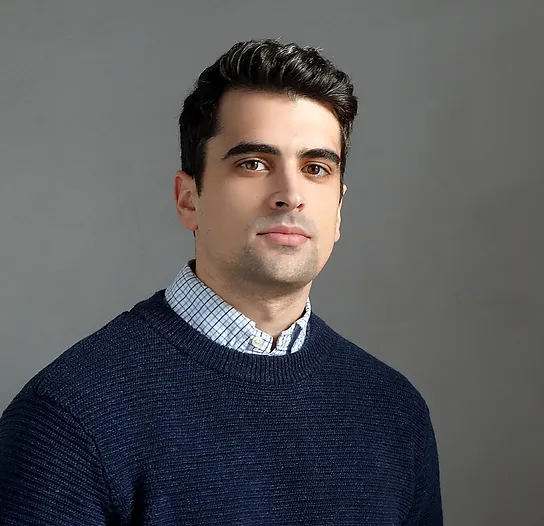Pierre is a leading college and graduate admissions consultant with extensive experience in education and entrepreneurship. His advice has been featured on Forbes.com, U.S. News, CNN Business, the Washington Post, ABC News, Business Insider, and more.

Welcome to the Tufts University supplemental essay prompts for the 2019-2020 application cycle! Here’s everything you need to know.
(You can refer to the Tufts University website if you want to see how exactly they’re presenting their essay prompts for this year.)
Think outside the box as you answer the following questions. Take a risk and go somewhere unexpected. Be serious if the moment calls for it, but feel comfortable being playful if that suits you, too.
Applicants to the School of Arts and Sciences, School of Engineering, and 5-Year Tufts/NEC Combined Degree answer the following two questions:
1. Which aspects of the Tufts undergraduate experience prompt your application? In short, ‘Why Tufts?’ (100-150 words)
Do your research. Many schools ask the “Why This College” question, and there just isn’t any way to recycle essays you’ve written for other schools. This has got to be Tufts-specific. Go deep and specific here. Find the place or places where your abilities and passions intersect with the unique opportunities available at Tufts.
2. Now we’d like to know a little more about you. Please respond to one of the following three questions. (200-250 words):
A) From recognizing break dancing as a new Olympic sport, to representation in media, to issues of accessibility in our public transit systems, what is something that you can talk about endlessly? What do you care about and why?
The temptation here is to write about something that gets you going, but that you haven’t done anything about. I, for one, object to the fact that lots of hotels put three rows of pillows on your bed. What are they all for? Isn’t it kind of a waste of water to wash them all? Or, worse yet, do they not wash them? I could go on and on about this, but the only thing I’ve ever done, concretely, to address this pet peeve is throw half of the cushions on the floor. You see? It’s not a great story, and it doesn’t make me look very interesting or smart.
I know, I know, the prompt is to describe “something that you can talk about endlessly,” but don’t forget that “talk is cheap,” and the second question is, “What do you care about and why.” I can’t imagine a great essay about something you care about, and talk about constantly, that doesn’t end with you doing something about it.
Now, I don’t mean that you need necessarily to have solved a problem. But you don’t want your essay to go something like: “I hate how hotels give you like eight or nine pillows. Are we supposed to sleep sitting up?” Better would be to describe how you became passionate about an issue, and what you did about it.
Needless to say, this is a great question for our student-entrepreneurs. Talk about an issue you’ve taken on. This is your chance to elaborate on your activities list: tell us why you care so much about what you did—not just that you did it. If you don’t have the experience of fighting for something you believe in, in a demonstrable way, you might want to consider choosing another question.
B) Whether you’ve built circuit boards or written slam poetry, created a community event or designed mixed media installations, tell us: What have you designed, invented, engineered, or produced? Or what do you hope to?
First off, as I always say: what you have done is far more impressive than what you hope to do. If you’ve ever applied for a job or internship, your interviewer probably asked you a series of questions about problems you’ve faced and overcome. The interviewer was probably following what’s called a “behavioral interview” model, because psychologists have decided that past accomplishments are a good indicator of future performance. Thanks, psychologists—no kidding.
In other words, I can tell you that I plan on building a civilization on Mars by 2035. If you know me, however, you know that I’m nowhere near one of the most qualified people on the planet to accomplish such a goal, assuming it were even possible.
So talk about what you have designed/invented/engineered/produced. Great question for our student-entrepreneurs. (Maybe you’re starting to see that being a student-entrepreneur helps when writing supplemental essays.)
It doesn’t matter what you’ve created, but it matters that you led the project and were the one who made it happen. Note that last year, Tufts started this question with: “Whether you’ve created blanket forts or circuit boards….” The fact that this year Tufts has gotten rid of the “blanket forts” example might suggest that they didn’t actually want to hear about such things. Think small—you don’t need to outline your project for world peace—but be appropriately serious when answering this question.
Remember, as always, not to repeat yourself. If you wrote your personal statement about the great non-profit you built, don’t talk about it again. Choose a different question. Remember also that the terrific project you created is already on your activities list, so it’s not enough simply to describe what you did. Tell a specific story about the project, and give us a sense of what it all meant to you, and what it all says about you.
C) We all have a story to tell. And with over 5,000 undergraduate students on our campus, that is over 5,000 stories to share and learn. What’s yours?
For this one, just write: “Please see personal statement.” OK, don’t actually do that.
This question is a freebie. It’s very much like the personal statement. Note that Tufts mentions the fact that they have over 5,000 students on campus with over 5,000 stories. They’re staying, in pretty explicit terms, that if you choose to tell a story, it has to be truly unique. The question isn’t just, “What’s your story?” but rather, “What’s a story that is unique to you?”
A couple pieces of advice. For one thing, do not repeat anything you said in your Common or Coalition App essay. If you feel you’ve already told “your story” on your Common/Coalition App essay, choose a different prompt.
Another bit of counsel: Tufts is asking for “your story” but not “your life’s story.” Don’t start with your name and date of birth (they’re already there on your application) and proceed to list everything you’ve done in life. If you choose to respond to this question, think small, and focus on one anecdote you feel says something meaningful about you.
As always, our Ivy League admission consultants are here to help. Don’t hesitate to reach out.




